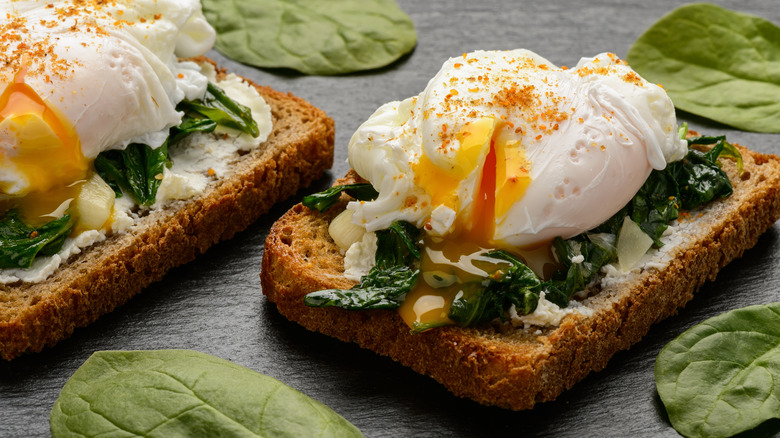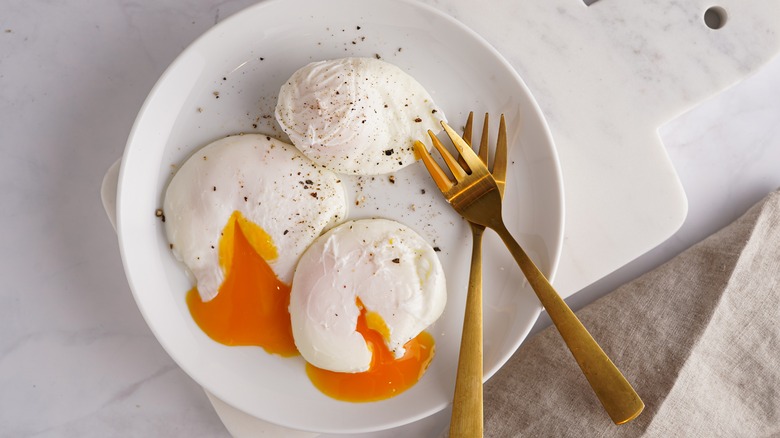Use This Genius Expert Tip For Making Poached Eggs For A Crowd
Poached eggs are a timeless breakfast staple, but they're also great for more than just a classic eggs Benedict. A well-poached egg is the ultimate topping for instantly elevating any dish, from fried rice to pesto pasta and even canned French onion soup. However, poaching eggs is a notoriously complex culinary task that can be daunting for home cooks, especially when serving a hungry crowd. Luckily, executive chef Maricel Gentile, owner of Maricel's Kitchen and author of "Maricel's Simply Asian Cookbook," has a brilliant expert tip for batch-cooking perfectly poached eggs: pre-soak them in vinegar. Food Republic spoke to chef Gentile to learn more about why this method works.
"Vinegar is acidic, and that helps coagulate the egg whites faster," Gentile says. "Crack the egg into a bowl of water and vinegar [two parts water to one part vinegar]. Let the egg sit for about 10 minutes, or until the outer layer of the egg whites turns [white-ish]." While soaking in the solution, the whites of the egg will begin to firm up, allowing it to cook quickly while maintaining its shape. Once the pre-soak is complete, "gently scoop the egg from the bowl and poach [it] for about [two to three] minutes," Gentile adds.
More tips for making perfectly poached eggs every time
Of course, there is a long list of mistakes everyone makes when poaching eggs, and vinegar alone won't prevent every potential disaster. This particularly finicky style of egg also requires patience and preparation — especially when it comes to keeping your poaching water at the proper temperature.
"Remember a gentle simmer, not rolling boil for your poaching," says chef Maricel Gentile. While it may be tempting to keep your burner on high to speed up the cooking process, rapidly boiling water can tear at your delicate eggs and cause them to fall apart in the pot. Instead, once your seasoned egg poaching water has reached an initial boil, turn your burner to low to allow the eggs to gently simmer.
As far as preparation goes, having the right kind of pot for poaching can make all the difference between perfectly cooked eggs and a watery scrambled mess. Chef Gentile recommends using "a wide shallow pan, not a deep pot" in order to easily retrieve eggs once they're cooked. Just be sure the pan can hold at least three inches of water so the eggs don't stick to the bottom. If you're poaching a large batch of eggs at once, "a hotel pan works great," says chef Gentile. "Put it across two burners on very low [to] keep a gentle simmer."


